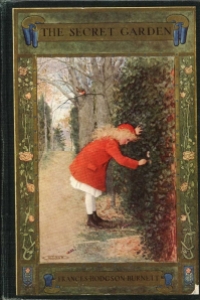 The word “bustan”, meaning usually an orchard or garden, is used by various Jewish-Palestinian organizations because it is known both in Arabic and Hebrew, and because it has pleasant associations in both cultures.
The word “bustan”, meaning usually an orchard or garden, is used by various Jewish-Palestinian organizations because it is known both in Arabic and Hebrew, and because it has pleasant associations in both cultures.
Interestingly, the word apparently comes from Persian. Bu- means fragrance. -stan means “place”. My source for this is the website www.iranica.com, which also mentions that Armenian has a word, burastan, which derives from it. The same source says that Bustan is a word only in New Persian, which goes back only as far as 800 BC. Since it somehow got into Hebrew and Arabic, I would have expected it to have arrived earlier.
The word –stan, i-stan, meaning “place” is familiar to everyone, since it appears in the names of numerous central Asian countries. It’s from an ancient Indo-European root, cognate to the Sanskrit sthaa, sthaana, etc., and the English word stand (source: Monier Williams Sanskrit-English dictionary).
The same iranica.com article also mentions various other words for garden. The word baag, an older Persian word, also means garden, but is more strictly a “lot” or “piece” of land. It derives from an Avestan word for “share”, just as in Hebrew, the word helka or lot, comes from the root helek or share. Baagh became a common word for garden in Urdu, Hindi and other languages.
Gardens seem to have been very central to Persian culture, for yet another of their garden words conquered the world: paridaiza (in Old Persian, originally from Avestan), from which the English word paradise, the Arabic word ferdaws, the Greek word parádeisos, and the Hebrew word pardes, are all derived. The word means literally an enclosed place (i.e. with walls around it). A longer explanation is to be found at balashon.com, which explores Hebrew etymology.
The English word garden expresses a very similar concept to paridaiza, in that it too means an enclosed space. It is cognate not only with another English word yard, French jardin, German garten, Latin hortus (cf. horticulture), but also with words meaning fortifications, like the Slavic grad, the old German gard (source: Wikipedia).
The usual Hebrew words for garden, gan, gina, come from the same root as lehagen: to defend or protect. So again, that’s the same concept as paridaiza and garden.

